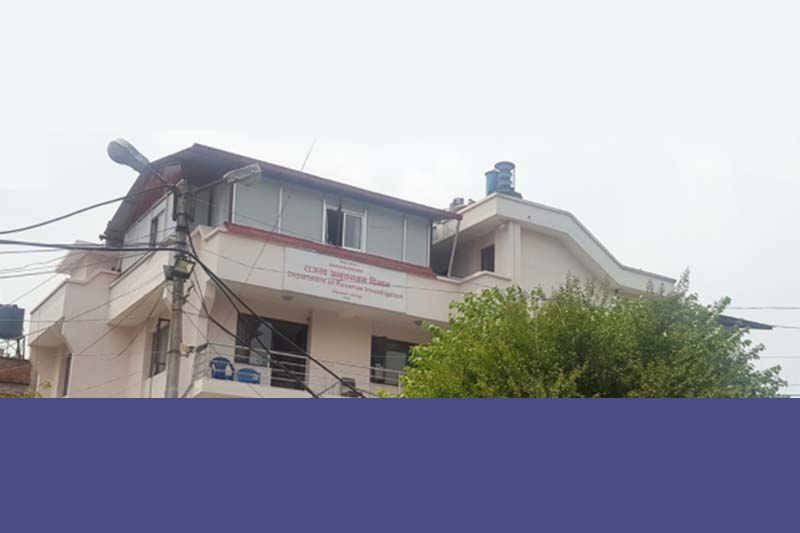

The Department of Revenue Investigation has been tightening its noose against the tax evaders or those involved in economic crimes of any sorts.
In the past two years, the Department has lodges cases against 1,000 defaulters and companies for their involvement in tax evasion cases.
Those individuals and companies, some of them being renowned ones as well, were alleged to commit financial crimes by dodging taxes worth over Rs 47 billion.
The Department that has been tasked to look into revenue leakages investigation and controlling economic crimes, has been brought under the Office of Prime Minister and Ministers of Council for a year now. It, however, has started its operation in full-fledge since August last year.
Department’s director-general Dirgharaj Mainali said, “We had probed into the risk-prone areas where economic transaction were conducted in high volume. We busted economic crimes in a greater scale. Many of the defaulters were facing case in the court while some were still being investigated.”
Mainali opined that the identification of the tax evaders, some of them being the multinational companies, could be considered one of the achievements of the Department.
Among the notorious criminal activities investigated by the Department include setting up new companies in the name of strangers by misusing their citizenship identity card and printing fake VAT bills and producing counterfeit government documents among others.
The gangs found to be using fake VAT and PAN bill, selling and buying fake invoices, registering the company by using forging documents, evading tax in foreign employment, involved in hundi business and misappropriating the foreign currencies have also been facing cases.
Cases of tax evasion amounting to around one billion rupees by using fake invoices have been filed against 13 people including Subodh Sah of Balara Municipality-7 in Sarlahi district in January this year.
The Department in course of investigation had found that they had evaded tax by operating bank account of 11 different firms. The Department last year had filed case against Barun Beverage on the charge of using fake bills.
The Department has demanded double fine and three years of imprisonment to them as the company had evaded tax of Rs 649.6 million.
Similarly, a case has been filed against three persons including main traders of Baba Flour Mill and Gopal Flour Mill at Biratnagar Metropolitan City-9, Suresh Kumar Rathi, at High Court, Patan, on February 28 this year on the charge of evading 153.6 million tax.
Likewise, a tax evasion case has been filed against Jay Kishor Sah and Parameshwor Sah who were found to have used fake invoices after establishing 24 firms alluring workers.
These were the glaring examples of economic crimes exposed in the past two years. The Department registered 221 cases (except related to foreign exchange misappropriation) of economic crimes. A total of 779 people including 11 government employees have been identified as the accused in the above mentioned cases.
They have been accused of committing finical crime worth Rs 36.35 billion. The list of accused include 126 firms which are alleged of issuing fake and duplicate invoices to avoid tax and 52 firms which had purchased duplicate invoices.
The Department achieved a success in noticing such offenses as it has developed and used a software to deal with the transactions. Mainali claimed the Department’s increased promptness has contributed to the control of revenue leakage and voluntary participation in the tax system.
440 face action for dollar misappropriation
According to the Department, so far 440 people face charge-sheet for the alleged financial crime. They have been accused of misappropriating worth Rs 10.72 billion.
The Department has sought to fine three-fold of the amount of misappropriation and a three-year jail term against them. It is said it has caused a positive impact on revenue mobilization and income through remittance.
The Department, in a bid to systematize the information system, has implemented the mandatory provision for entering the import and export of goods in the system before the transport.